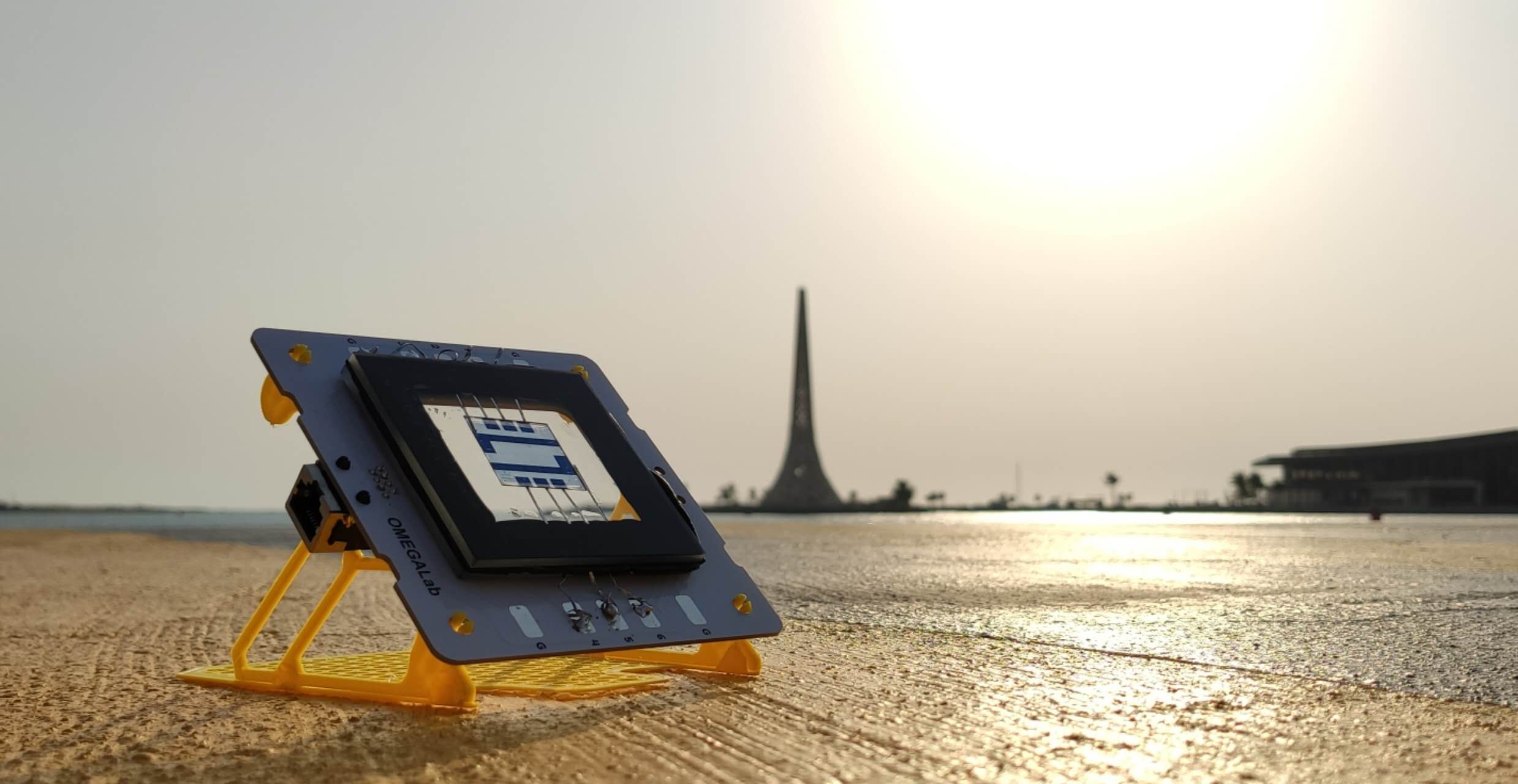Biweekly research update

Stability and efficiency are critical when evaluating solar cells. The organic solar cells (pictured) were tested under extreme hot Saudi climatic conditions to evaluate their stability. © 2023 KAUST.
Below is a list of the latest research achievements at KAUST
Organic solar cells are a promising technology for renewable energy, but their outdoor stability is limited. KAUST researchers have discovered that a family of organic solar cell materials called Y-series nonfullerene acceptors (Y-NFAs) enhance outdoor stability. This discovery have promise for designing windows that improve the energy efficiency of homes, greenhouses, and other buildings.
https://www.sciencedirect.com/science/article/pii/S2542435123002763
One approach to combating rising temperatures in the Arabian Peninsula is the greening of dry areas, but to do so requires monitoring the impact of vegetation on surface temperature. KAUST researchers have used satellite data to compare the surface temperature differences between planted areas and bare soil at five sites representing Saudi Arabia's main agricultural regions, finding that managed vegetation can mitigate rising temperatures.
https://www.sciencedirect.com/science/article/pii/S1470160X23009317
Hyperloops are futuristic trains that are expected to reach the speeds of airplanes. KAUST researchers have proposed the use of intelligent reflecting surfaces that feed wireless radio signals to meet the unique communications challenges these transport systems create.
https://ieeexplore.ieee.org/document/10197525
Building on traditional modeling and prediction tools, KAUST researchers have introduced DeepKriging, a deep neural network. DeepKriging was designed to solve complex and large spatiotemporal datasets and tested on air pollutant particulates.
https://www.sciencedirect.com/science/article/pii/S2211675323000489
As patient data are increasingly used to teach AI models or machine learning algorithms to make disease diagnosis and treatment decisions, there is growing concern about their right to withdraw private information. As a solution, KAUST researchers have developed audit to forget software (AFS). AFS guides the forgetting process so that training models unlearn information.
https://doi.org/10.1038/s41467-023-41703-x
A new strategy to enhance the thermal stability of organic solar cells has been developed by KAUST researchers. The approach, which utilizes multicomponent mixtures of materials called nonfullerene acceptors, can potentially make large-area organic photovoltaics easier to produce. Organics cells are less expensive and more flexible than traditional silicon-based solar cells, but advancements like these are necessary for their adoption.

